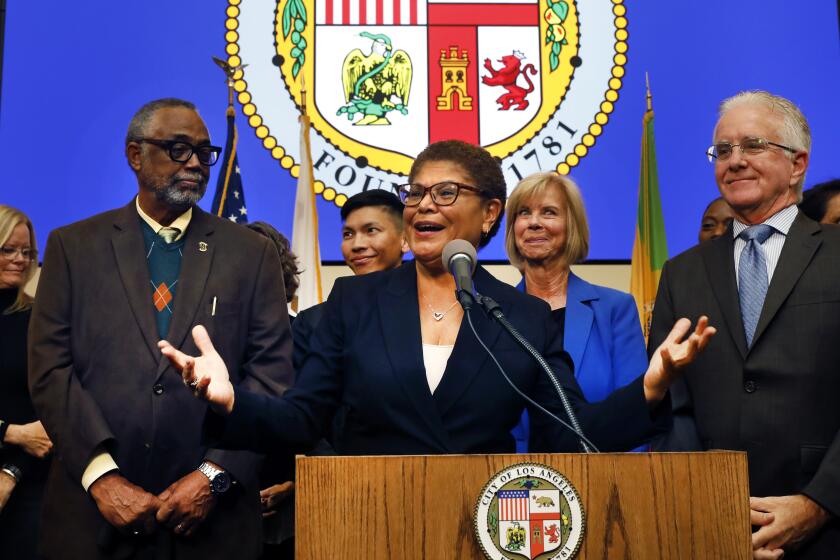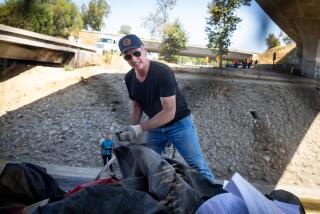L.A. County poised to declare state of emergency over homelessness crisis
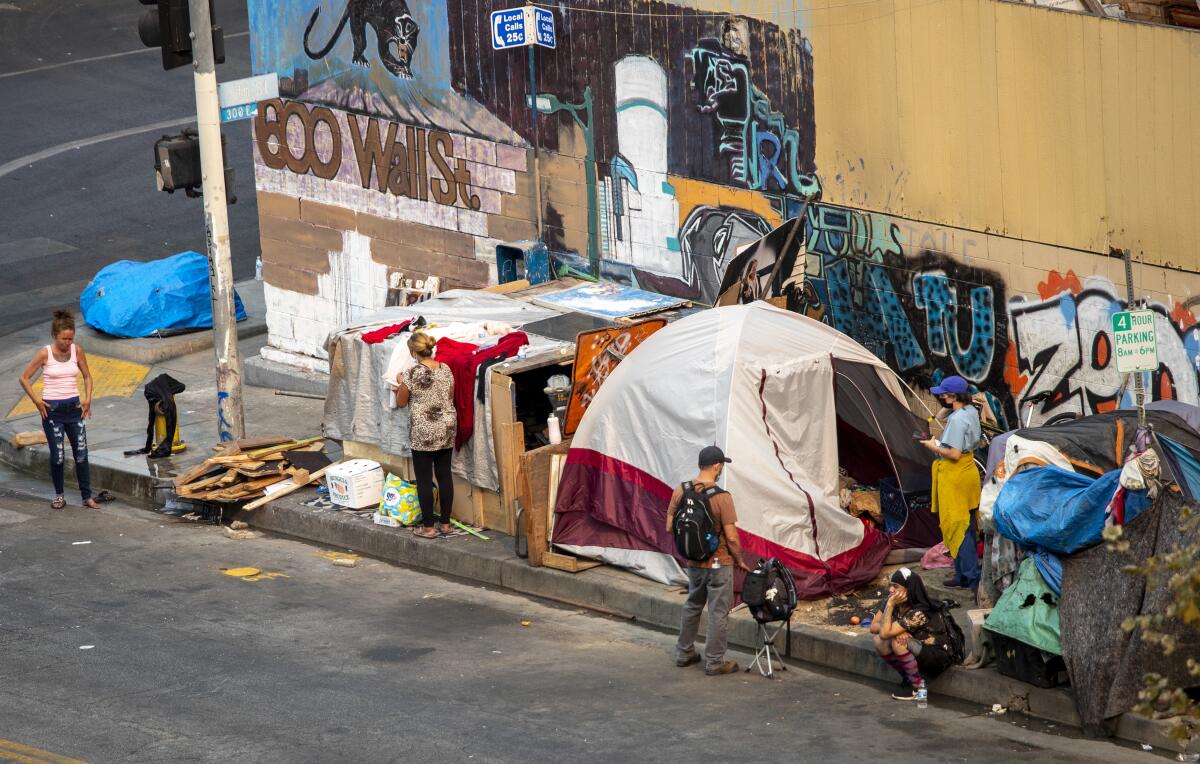
- Share via
Los Angeles Mayor Karen Bass was the first to act, last month declaring the homelessness crisis a citywide state of emergency, one as calamitous as any earthquake or hurricane. Long Beach Mayor Rex Richardson asked his staff to draft a similar declaration hours after he was sworn in.
It’s now the county’s turn.
The Board of Supervisors is expected to approve a motion Tuesday from Supervisors Lindsey Horvath and Kathryn Barger declaring a countywide state of emergency on homelessness, aiming to dramatically speed up the time it takes to provide services to the tens of thousands of people sleeping on the streets.
Horvath, who was elected in November and sworn in last month, called the declaration overdue.
She said in an interview Sunday that she believed a poor partnership between the city and county was partly to blame for the past inaction. With new leaders at the helm, the two oft-bickering jurisdictions — each with massive roles to play in getting people off the streets — have pledged to press “reset” on their fractured relationship.
Horvath framed the emergency declaration as her making good on that promise.
”This is a ‘hand in glove’ approach that the mayor and I had talked about on the campaign trail,” Horvath said, referring to Bass.
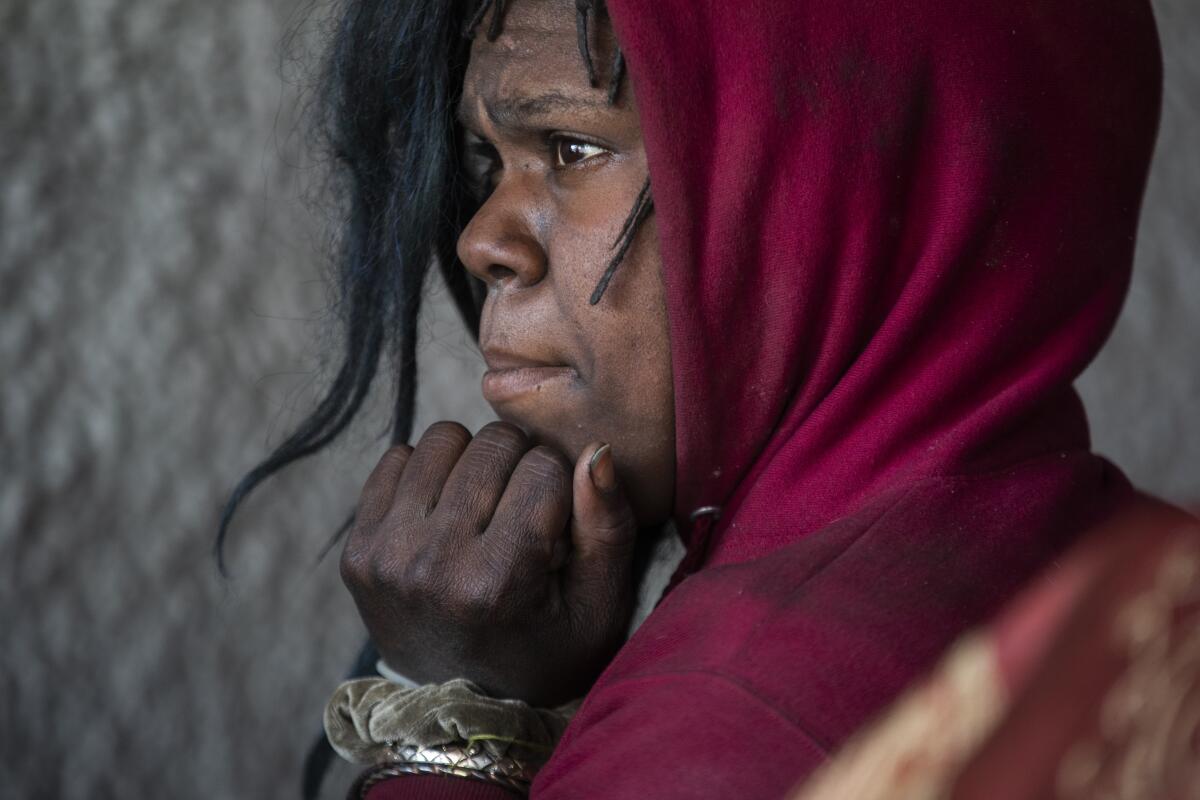
The most recent count found roughly 69,000 people experiencing homelessness in the county, roughly 60% of them in the city of Los Angeles, a total that has grown steadily over the last decade.
Because it has become the dominant local issue for city and county residents, pledging immediate action is now the politically obvious thing to do, experts said.
“This is all driven by public reaction to the proliferation of homeless encampments over the past two or three years,” said Gary Blasi, professor emeritus at the UCLA School of Law. “Any politician who doesn’t make some progress on this is going to be in some significant trouble.”
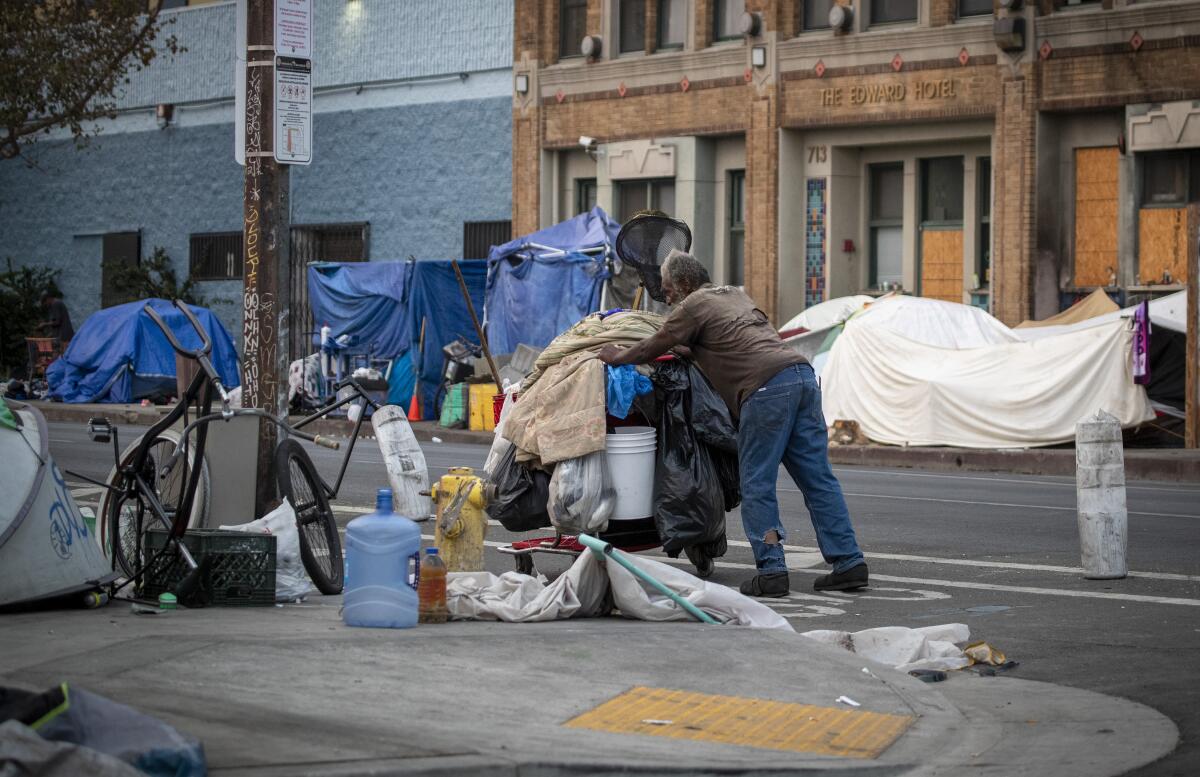
To some homeless services providers, the back-to-back emergency declarations are a welcome sign that the days of receiving competing marching orders from the city and county are over.
“We literally felt as a service provider that we were caught between two parents and who were you supposed to listen to? You respect each. You need each. But they’re not in agreement with each other,” said Stephanie Klasky-Gamer, president of the nonprofit LA Family Housing, one of the region’s largest homeless service providers, which contracts with both the city and county. “Now you have parents that like each other and want to work together and you feel that you’re all working towards the same goal.”
An emergency order gives L.A. Mayor Karen Bass the power and flexibility in responding to the homelessness crisis. It’s up to her how big she’ll go.
Cheri Todoroff, executive director of the county’s Homeless Initiative, said the emergency declaration will allow contracts with homeless services providers to be finalized much faster, meaning quicker deployment of resources to people living outside. More than $500 million flows each year through the Homeless Initiative, which is coordinating the county’s homeless response.
Currently, both the bidding and selection process and the hiring process can take up to a year, Todoroff said. That includes hires for positions where there’s a crucial shortage, such as mental health workers.
The goal of the emergency declaration, Todoroff said, is to speed up these timelines while being responsible with taxpayer money.
“Those steps can take awhile, and so what we want to do is — while still being a good steward of the public dollars — look at eliminating some of those steps,” she said.
What exact steps will be eliminated is still unclear. The Homeless Initiative is expected to report back to the board in two weeks on what could be cut to speed up the delivery of services to people living outside.
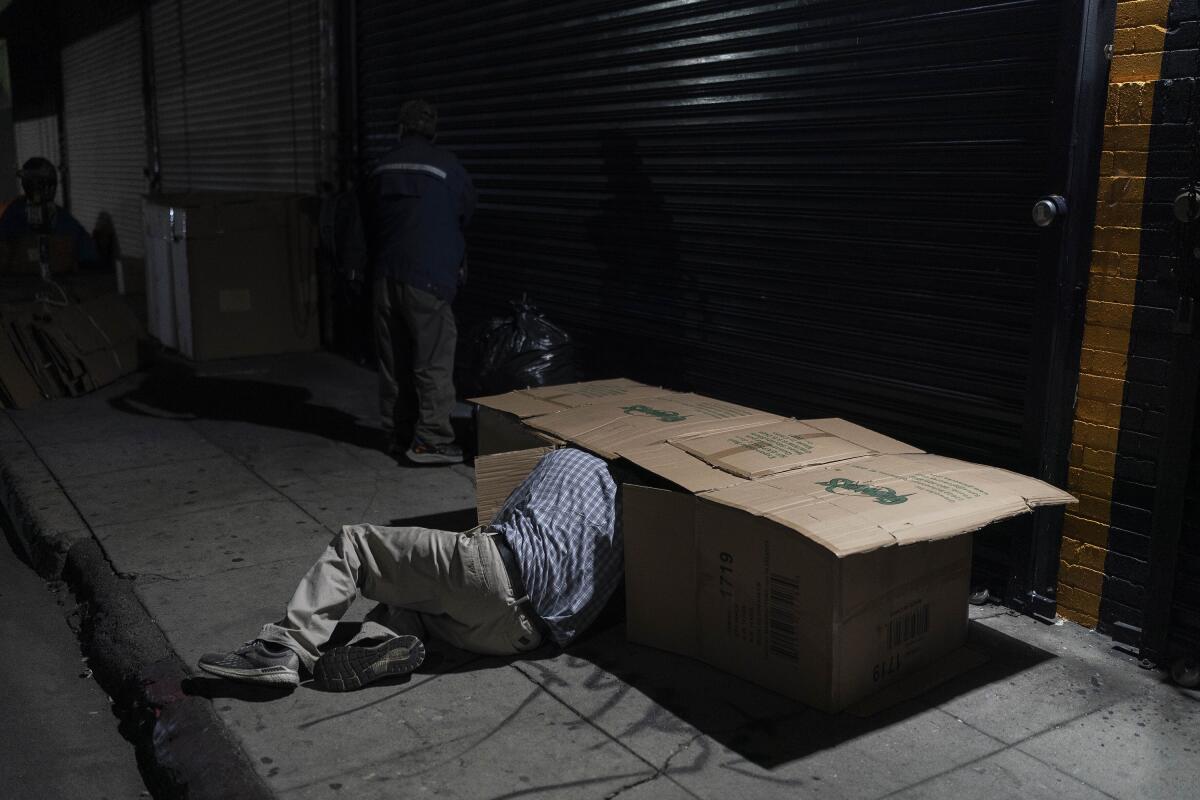
Policy expert Sarah Dusseault, who co-chaired the county’s Blue Ribbon Commission on Homelessness, called the declaration “the first step.” She points to recent actions by Bass, who used the newfound emergency power to issue a directive expediting the creation of affordable housing.
“To the layperson, we’re like, ‘OK, well, what does this mean?’” Dusseault said. “A lot of substantive detail in terms of what it means isn’t going to necessarily be in the initial declaration. It’s going to be in ‘OK, how do we implement?’”
“Ninety percent of what happens is going to be in execution,” Blasi said.
He expressed cautious optimism about the declaration.
Get the lowdown on L.A. politics
Sign up for our L.A. City Hall newsletter to get weekly insights, scoops and analysis.
You may occasionally receive promotional content from the Los Angeles Times.
He said he saw potential in the part of the motion that directs the Homeless Initiative to spearhead the coordination of the emergency response, which he said could streamline decisions and prevent micromanaging from the board. But he noted that the declaration doesn’t give the Board of Supervisors — one of the most powerful government bodies in California — much legal power it didn’t already possess.
He said the most notable power an emergency declaration gives the board is one it’s unlikely to put to use: the ability to commandeer private property for housing.
Local leaders have historically found that idea politically unsavory. Bass, whose emergency order similarly gave the city the power to commandeer property, said she had no interest in doing so as it would “end up tied up in court forever.”
“I’m pleased they’re doing it,” Blasi said of the emergency declaration. “I’m not going to start thinking that we’re close to solving the problem.”
More to Read
Sign up for Essential California
The most important California stories and recommendations in your inbox every morning.
You may occasionally receive promotional content from the Los Angeles Times.
